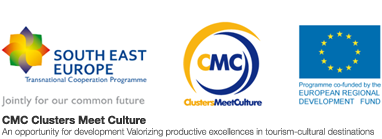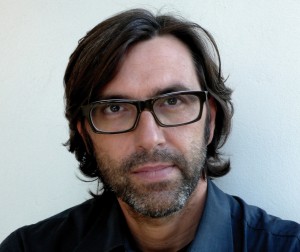Stakeholder’s point of view: interview with Roberto Naccari, President of “Santarcangelo dei Teatri “ – International Festival of Theatre.
According to your opinion, a cluster needs to be formally recognized?
Absolutely yes. Formal recognition must proceed side by side with and guide the construction of the awareness of the identifying values underlying the promotion of a cluster.
The art and culture produced by a territory are strongly influenced and cross-contaminated by its social and economic characteristics, even when it offers responses that are apparently very distant from the culture that produces it. Culture is an extremely sensitive thermometer that is permeable to the influence of everything that surrounds it.
Which are the main obstacles hindering clustering? What are the main success achieved?
I believe the main obstacles are the lack of a capacity of a community to consider itself as such, and the constant desire for differentiation.
The creation of a local cluster presupposes a kind of uniformization that aims to more effectively distinguish the cluster in a greater and more globalised context. Only the capacity to look at ourselves from the outside, and from far away, allows us to see the things we have in common rather the differences that divide us.
How strong is creative and cultural industry in your region? How would you define it?
I think it’s very strong, extremely lively and with an aptitude for dialogue in contemporary languages, and it therefore has a natural disposition for participation on global scenarios. The provincial and polycentric nature of our territory encourages a need for movement in our artists and creatives, reinforcing cross-contaminations and amplifying inspirations.
Paradoxically, the cultural experiences that emerge on metropolitan scenes are much more static and suffer from a certain degree of self-referentiality.
How strong is tourism in your region and what development potentials can you see?
The regional tourism system is strong, but with very dangerous elements of crystallization. Only rare examples of innovation can be seen in the world of tourism entrepreneurs. A large-scale “industrial” system must maintain and develop areas of “research and innovation” that can act as a stimulus for the more conservative part of the system.
In your opinion, are enterprises from the productive sector (industry) linked with the culture? Are donations to cultural activities from the private sector strongly developed (mecenate)?
In my territory, the relationship between industry and culture is virtually absent, and there are no mechanisms for enhancing the social value of those rare industrial subjects that show some kind of participation in the cultural field. I believe this territory has seen economic expansion without this bringing a parallel development of a “true” .
Do you think Private public partnership could be a good tool to promote an integrated tourism promotion of the territory?
I’ve haven’t a clear opinion about this, and I find that certain terminologies can contain profiles of extreme vagueness. Certainly, all the players in a system must participate in the integrated promotion of their territory. The problem is understanding how these partnerships should operate, and what kind of equilibria would be created.
What do you expect from the CMC project?
I must admit that I can’t quite grasp the potential linked with the creation of the professional figures proposed. I’d expect the project to act as a stimulus that gives added value to the territory’s liveliest, most innovative and boldest experiences. A stimulus that doesn’t attempt to represent everything and everyone, and that can therefore highlight what’s most outstanding, offering a point of reference even for the more conservative and least progressive sectors, that can in some way indicate a way forward and a model for a decisive reversal.

